Not getting a good night’s sleep can leave you feeling moody or irritable the next day. But what happens if you experience sleep problems for several nights in a row? Being constantly fatigued may not be the only change you notice –– you may also start to feel an impact on your mental health.
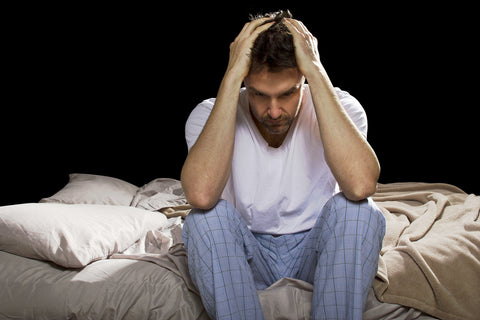
Sleep issues may be a sign of a psychotic disorder, such as bipolar disorder. Mental health issues, however, can also lead to or be made worse by poor sleep patterns. Some of the more common mental health disorders that have been linked to sleep include:
When sleep becomes elusive, search out the sleep experts at My CPAP Club. Based in North Carolina, we can ship CPAP machines, water chambers, masks and accessories to patients all over the United States who need help breathing while asleep (and staying asleep).
Take care of a sleep disorder before it impacts your mental health. Lean on My CPAP Club by calling us at 1-888-272-7050 or by filling out our online contact form.
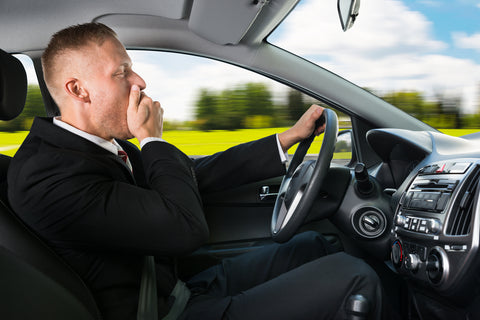
Drowsy driving may seem like it’s something that isn’t that harmless. After all, there aren’t legal ramifications for driving while sleepy like there are for those who are caught drunk driving. What’s more, you may feel like you are able to beat the system, so to speak, by adjusting the temperature in your car or by drinking caffeinated beverages.
The statistics, however, speak otherwise. A study published in the journal “Archives of Internal Medicine” indicates that a person who is driving drowsy is just as likely as a person driving drunk to cause an accident. The study also found that men are more likely to engage in drowsy driving, and that those who are ages 18-29 are also more likely to get behind the wheel while sleepy.
Factors that can contribute to drowsy driving in North Carolina include:
Another factor that can contribute to your drowsy driving is an undiagnosed sleep disorder, such as sleep apnea. Sleep apnea is a medical condition that refers to difficulty breathing while asleep. Sleep apnea can be diagnosed by a physician, who may gather information about your sleeping habits or patterns from a family member.
If they determine that you have sleep apnea, one of the best means you can use to get a good night’s sleep (and end drowsy driving) is through My CPAP Club. My CPAP Club is based in North Carolina, and can ship CPAP machines, water chambers and masks across the country. These devices will help you maintain healthy breathing patterns while you are asleep, leaving you feeling well-rested in the morning.
Don’t become a driving statistic. Turn to My CPAP Club for all of your CPAP machine needs. To get started, contact us online or call us at 1-888-272-7050 today.
We all hit that 2 p.m. wall from time to time –– your coffee wears off or that big lunch kicks in and you’re fighting the urge to nap. Now imagine that feeling all the time, regardless of your caffeine or food intake. Hypersomnia is a condition that results in excessive daytime sleepiness (or EDS). This means that almost regardless of what you are doing, such as working or driving, you may find it nearly impossible to avoid falling asleep.
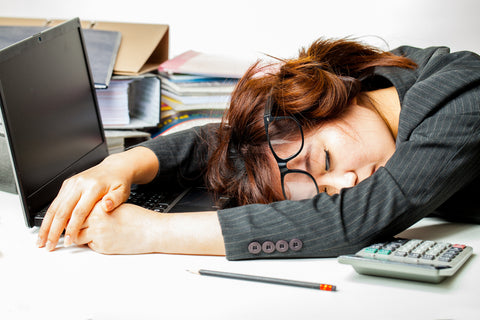
This won’t just affect your work output. Hypersomnia can also wreak havoc on your critical thinking abilities, as well as your overall energy levels.
Many factors can contribute to hypersomnia, including:
If your doctor has cited sleep apnea as the root cause behind your hypersomnia, My CPAP Club can help. Sleep apnea is a condition that refers to difficulty breathing while you are asleep. This can lead to interruptions in your sleep patterns that you may not even remember, leaving you feeling tired during the day.

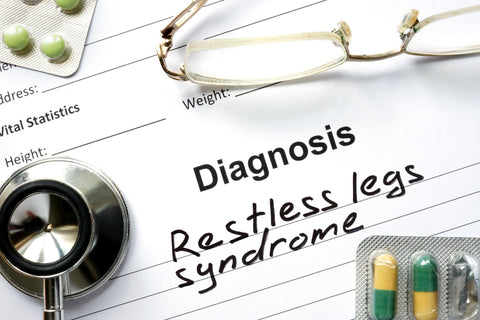
Even if you’re tired and ready to go to sleep for the night, your body may not cooperate by showing signs of restless legs syndrome (RLS) or periodic limb movement disorder (PLMD). RLS is a neurological disorder that causes your legs and other limbs to feel the need to move. Some patients describe it as pins and needles, which can be made worse when you are sitting or lying down. Even though it can come and go, RLS is often the most disruptive at night –– and can result in so much sleep deprivation that it starts to drastically impact your quality of life.
On the other hand, PLMD is movement or cramping in your legs while you are asleep. It is referred to as periodic because it generally occurs one to three times every minute. PLMD has been linked to RLS, and has also resulted in the loss of sleep.
It is not known what causes either disorder, although PLMD and RLS have been linked to the following:
If other sleep disorders, such as sleep apnea, are to blame for your PLMD or RLS, My CPAP Club can help. Located in North Carolina, we are able to ship devices all over the country to help you get the good night’s sleep you deserve. We also sell all supporting equipment and accessories, so you won’t have to go through multiple vendors to finally enjoy sleeping through the night.
Ready to sleep for a solid eight hours? Contact My CPAP Club online or check out our FAQ section to learn more about how we can help.
If you are a parent, you know that sometimes, kids will just be, well, kids. Other times, signs of potential developmental disorders may be appearing as what others will claim is just typical child behavior. If your child falls into that second category, there are a few ways to check if they are suffering from attention deficit hyperactivity disorder (ADHD) or are experiencing a different problem altogether.
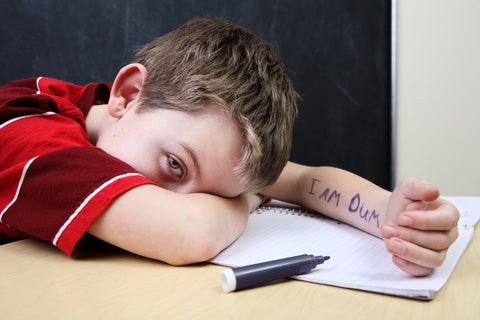
ADHD is an umbrella term for a disorder that also includes older diagnoses of ADD. Now commonly referred to simply as ADHD, this is characterized by an inability to focus, pay attention, sit still and play quietly. Children who have ADHD may also talk loudly, interrupt frequently or have trouble completing assigned tasks (either at home or school).
As there are many factors that can contribute to an ADHD diagnosis in North Carolina (and there is no end-all-be-all ADHD test), it is important to note that other circumstances can also cause some of those characteristics — including sleep deprivation, or not getting enough sleep.
Children who have not slept as much as they should can experience some of the same symptoms that are attributed to ADHD, including:
You’ve probably heard stories about people counting sheep until they reach the thousands and still being unable to fall asleep. Maybe you’ve experienced a night or two like that yourself. Such a problem is generally attributed to insomnia, a somewhat familiar sleep disorder.
Less well-known, sleep apnea is a sleep disorder that tends not so much to prevent sleep as to diminish its quality. If you are one of the millions of Americans who has trouble staying asleep, then you’ve likely experienced some form of sleep apnea.

Although insomnia can also be responsible for difficulty staying asleep, it is most recognized for keeping people awake. So, when deciding whether you’re facing sleep apnea or insomnia, you can begin by determining whether you’re having trouble falling asleep or simply staying asleep.
If staying asleep is your issue, there could be a number of reasons. However, the common thread among those suffering from sleep apnea is some form of airway obstruction while sleeping. When you sleep, the muscles in your throat relax, narrowing your airway. Certain hereditary and biological conditions can make your airway more dramatically narrowed than normal, which can lead to a cessation of breathing. Your body’s natural response is to jerk you awake so that you can begin breathing again.
If you’ve woken short of breath or a family member has witnessed you stop breathing temporarily while asleep, you should seek help immediately. For serious concerns about your health, make sure to consult your primary care physician. The professionals at My CPAP Club can answer any questions you may have about sleep disorders and relevant treatments. Contact us today to get back to sleeping comfortably the whole night through.
Despite your best attempts to get a good night’s rest, do you still wake up with a headache and/or a sore, dry throat? If so, you could be one of millions of Americans who suffer from sleep apnea.
While excessive drinking shortly before bed can result in similar symptoms, we’ll assume that you’ve limited your alcohol consumption in pursuit of that seemingly elusive good night’s sleep. If you’ve been experiencing chronic morning headaches, whether or not they’re accompanied by a sore throat, you understand just how detrimental they can be to your daily productivity, as well as your mood. They can lead you to be irritable and distracted, which can negatively impact your job performance and pose a threat to you and the people around you.

As just one of multiple symptoms of sleep apnea, morning headaches are a potential sign that you have a sleep disorder. While headaches in the morning may seem like a manageable inconvenience, letting a sleep disorder like sleep apnea go untreated may result in deteriorated health, including the following serious issues:
To avoid these needless health risks, seek help from the professionals at My CPAP Club, who can assist you with treatments for sleep apnea and get you back to enjoying a full night’s sleep. Imagine waking up feeling refreshed, with no headache and no sore throat. Just contact us today to learn more and get started.